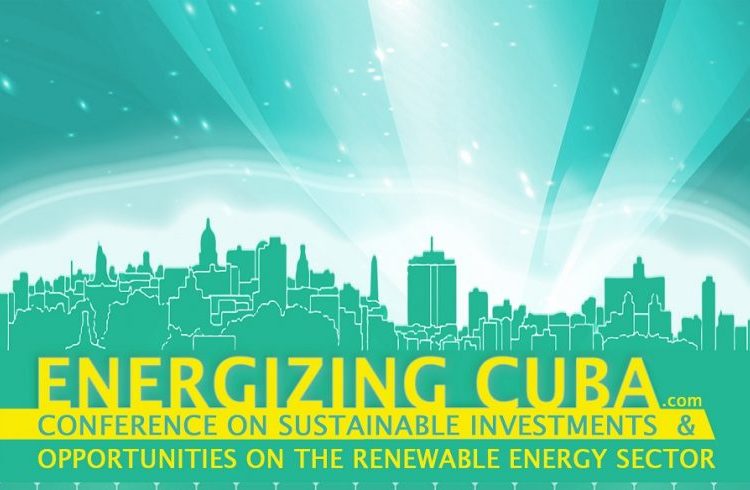Cuba’s favorable natural characteristics offer a different business opportunity for the promotion of the archipelago as a tourist destination: renewable energy generation as a potential investment destination.
The Energizing Cuba, Conference on Sustainable Investments in Cuba, organized by the Society of Americas, the Council of Americas and Cuba Strategies Inc., will be held in New York on October 7 with the aim of showing the potentials of the Cuban market.
The latter entity’s Official Head of Strategy, Carlos Fernández Aballí, said to OnCuba that it is just the takeoff of an initiative to make known among U.S. companies the investment opportunities in renewable energy in Cuba, and which will include another series of conferences in U.S. universities like Duke, with the closing planned for Havana in 2017.
Fernández Aballí highlighted the importance of the energy consortium associated to Duke University, North Carolina, one of the states that have most implemented renewable energy in the United States of America, which is also the second country with the biggest investments in the sector in the last five years after China, according to the U.S. Energy Systems Map.
For the October 7 Conference it is expected that Cuban and U.S. panelists will speak in the morning session about the island’s energy industry and the investment opportunities in the field of renewable energy, while in the afternoon another group of experts will give information about the legal implications of doing business with Cuba, like protecting the investments, obtaining licenses from OFAC and how to maintain relations with key Cuban institutions.
Cuba seeks $4.2B in foreign investments for energy. Join us Oct. 7 to talk wind, solar & bio-electric projects. https://t.co/kLOd9ieKwp
— AS/COA Online (@ASCOA) 29 de septiembre de 2016
Aballí added that the aim is to gather a solid business delegation to go to the Havana conference to close deals, create a platform of confidence that attracts those investors and start strengthening the infrastructures that allow for assembling wind power parks, solar panels on a large scale and other means to take advantage of the renewable energy sources.
Cuba has an especially marked potential in the intensity of solar rays throughout the year, sites regularly influenced by the trade winds, a considerable amount of sugarcane mass with possibilities of growing and sufficient capacity to generate the necessary human resources.
Cuba’s energy core is based above all on the use of fossil fuel, which is why the island intends to go from using renewable energy from the current 4 percent to 24 percent in 14 years, an ambitious aim if it is taken into account that the major capitals of the sector are precisely U.S., even prevented from freely trading with Cuba due to the blockade laws enacted by the U.S. government since 1962.










